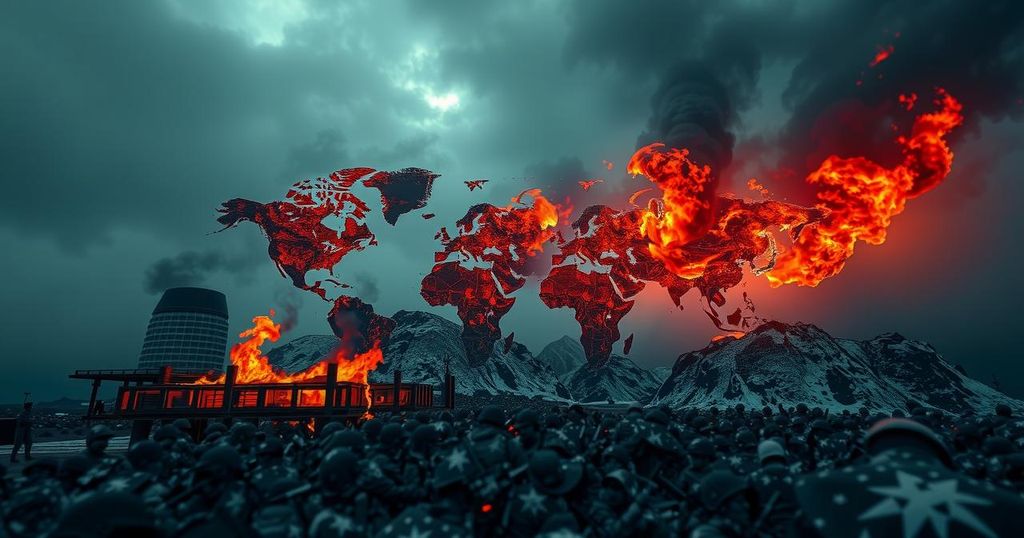The article explores the dual interpretation of Armageddon as both a prophetic war and a manifestation of the global climate crisis. It highlights the urgency of environmental stewardship emphasized in Judaism and Islam, linking climate change to social inequity and health concerns. Furthermore, it discusses the declining state of global democracies and the prophetic vision of a transformative end times, underscoring the need for unity across faiths to mitigate current crises.
The term “Armageddon,” often associated with an eschatological war, actually has nuanced interpretations that extend beyond conflict, encompassing urgent global issues such as climate change. This concept derives from Revelation 16 in the New Testament, which speaks of kings gathering at Armageddon, symbolizing humanity’s collective responsibility in the fight against global warming.
Both Judaism and Islam emphasize environmental stewardship, encouraging followers to care for the earth. Current climate data reveals alarming trends: Europe grows dangerously warm, while predictions indicate significant ice melt and rising sea levels, threatening millions worldwide. Furthermore, the adverse effects of extreme weather will disproportionately impact vulnerable populations, exacerbating social inequities.
Research indicates that emissions of carbon dioxide have reached record levels as nations revert to coal. Climate change will moreover intensify heatwaves, droughts, and wildfires, perilously affecting biodiversity and human health. On an alarming note, diabetes rates in the United States have doubled in recent years, illustrating the interlink between environmental stressors and public health.
Additionally, a significant decline in democracy has been registered worldwide. Presently, the majority of global citizens live under authoritarian regimes, creating an urgent need to defend democratic values. Islamic eschatology foresees a transformative end-of-days scenario involving messianic figures, including the Mahdi and the return of Prophet Jesus, who together anticipate a confrontation between good and evil. Such scenarios mirror the prophetic traditions of Judaism regarding the Messianic Age, characterized by justice, peace, and collective accountability.
Historically, the concept of Gog and Magog emerges across religious texts, representing not only human conflict but also natural catastrophes wrought by humanity. Recent insights point to a coalition of nations in pursuit of peace as a pathway toward genuine change. The anticipated revelations in prophetic literature suggest a collective journey towards redemption, facilitated by understanding and respect across religious divides.
The topic of Armageddon and its implications intersects with both religious prophetic traditions and contemporary global challenges, particularly climate change. Armageddon is widely recognized as a metaphorical culmination of societal strife, yet it also finds relevance in ongoing environmental crises. Both Judaism and Islam share a belief in stewardship of the earth, highlighting the critical responsibility of humanity in addressing ecological upheaval. Furthermore, current socio-political dynamics underline the fragility of democracies worldwide, implying a need for collective action against perceived threats, both natural and political.
In conclusion, the multifaceted interpretation of Armageddon extends beyond warfare to encompass the dire realities of climate change and ecological stewardship. Religious frameworks encourage accountability, urging global unity in addressing environmental degradation while fostering intercultural and interfaith cooperation. Acknowledging the prophetic aspirations for a just and peaceful future is essential in navigating the present crises, ultimately reminding humanity of its shared responsibility in the stewardship of the earth and the pursuit of a sustainable, harmonious existence.
Original Source: www.eurasiareview.com






